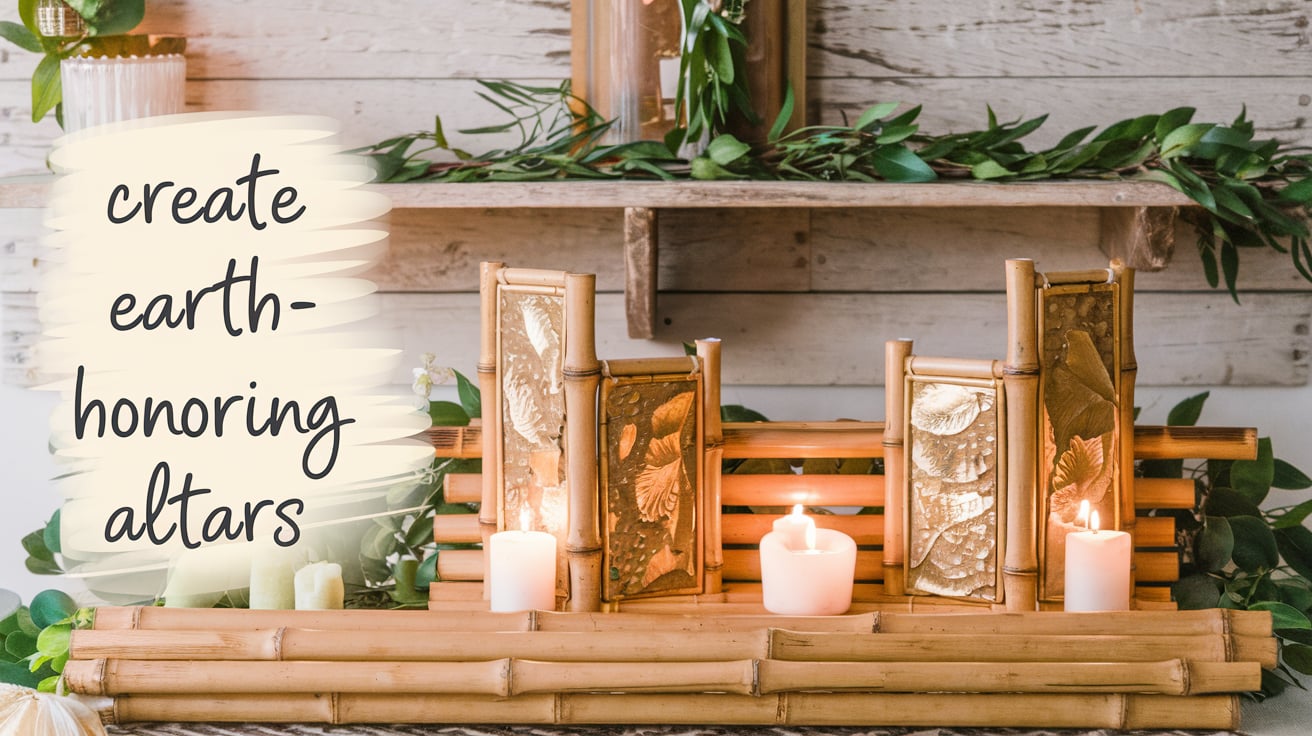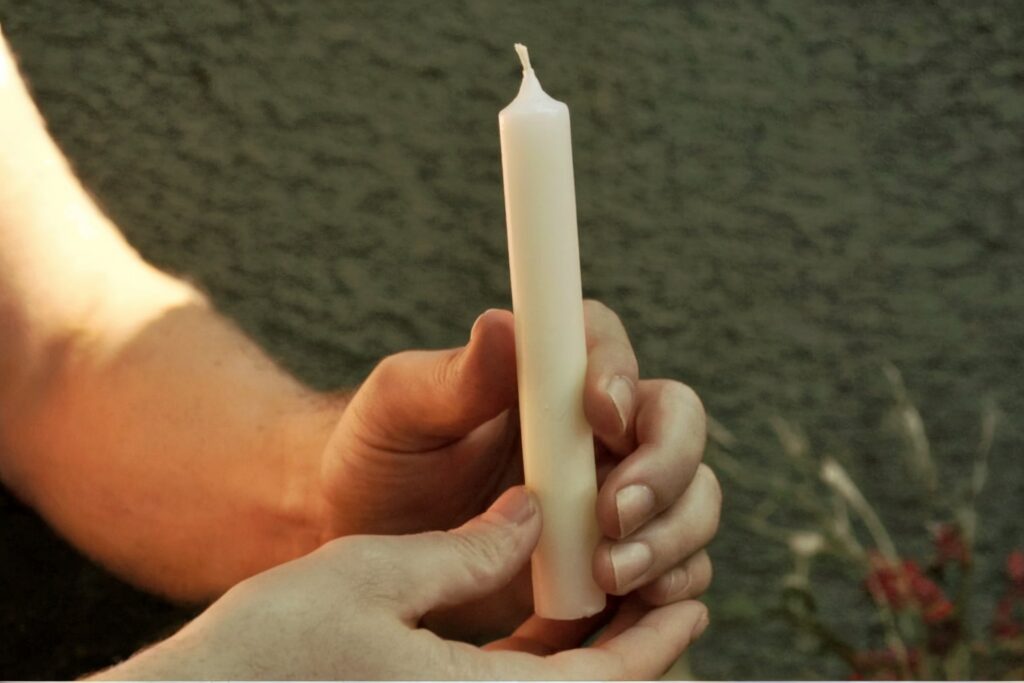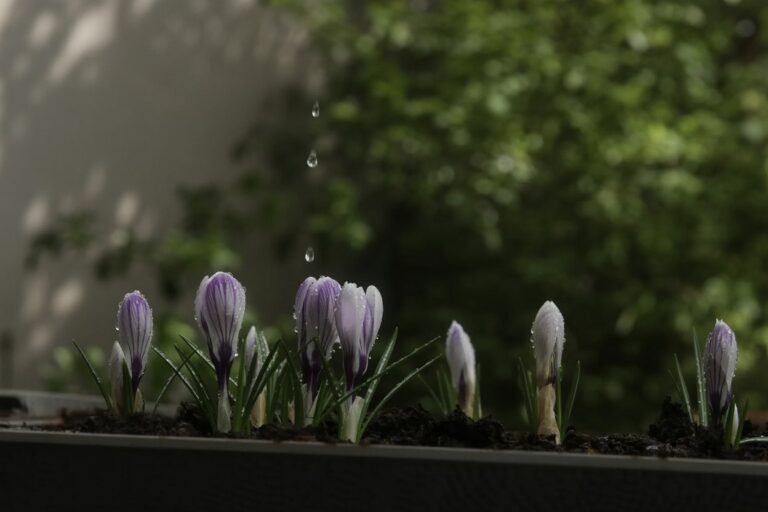Sustainable Materials for Eco-Friendly Altars
Please note that posts on this site may contain affiliate links
As awareness of environmental impact grows, many spiritual practitioners are choosing to create altars with sustainable materials. These eco-friendly options not only reduce waste but also align with the principles of mindfulness and respect for the Earth. Here are some of the best sustainable materials to consider for your altar.
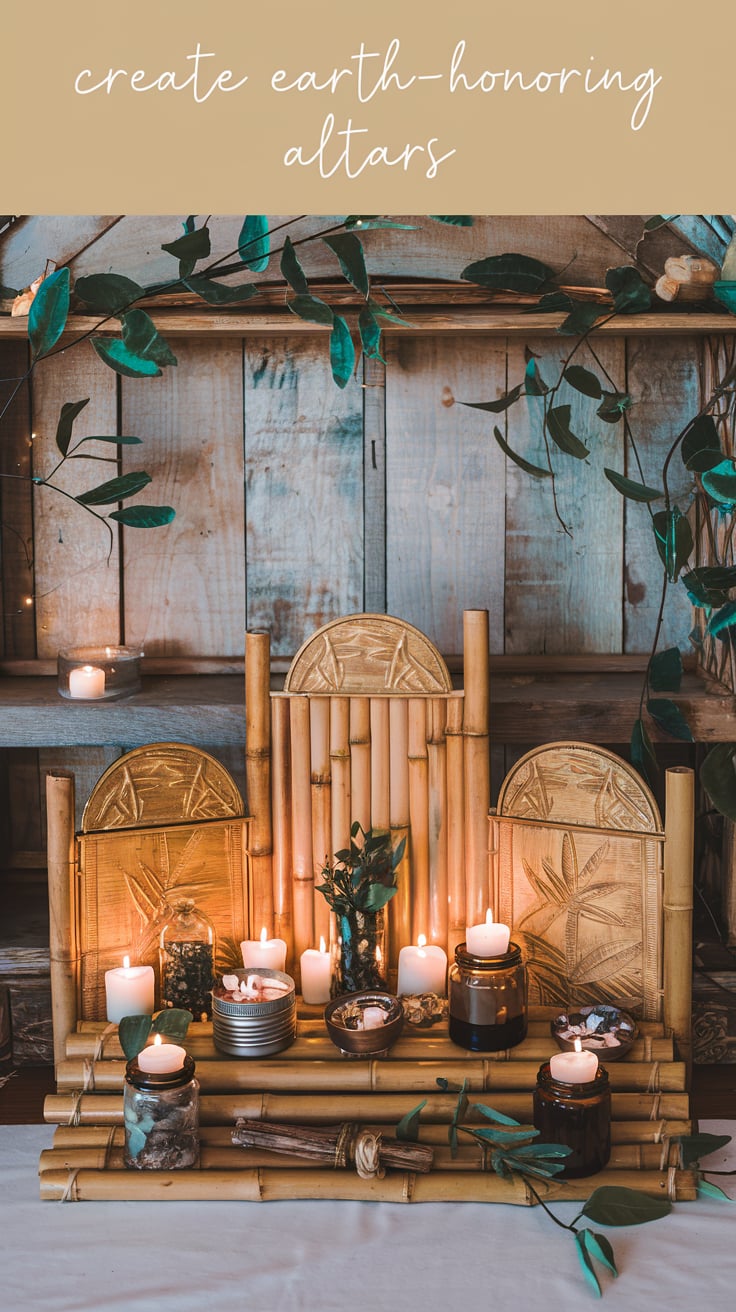
Bamboo: A Renewable Wonder
Bamboo is a top choice for eco-conscious altar makers.
- Renewable Resource: Bamboo grows rapidly, making it one of the most sustainable materials available.
- Lightweight and Versatile: Its light weight makes bamboo easy to handle and transport.
- Natural Aesthetic: Bamboo has a clean, earthy appearance that works well in minimalist or nature-focused altar designs.
How to Use Bamboo
- Build a simple tabletop altar using bamboo panels.
- Use bamboo rods to create altar frames or partitions.
- Incorporate bamboo trays or containers for holding offerings and tools.
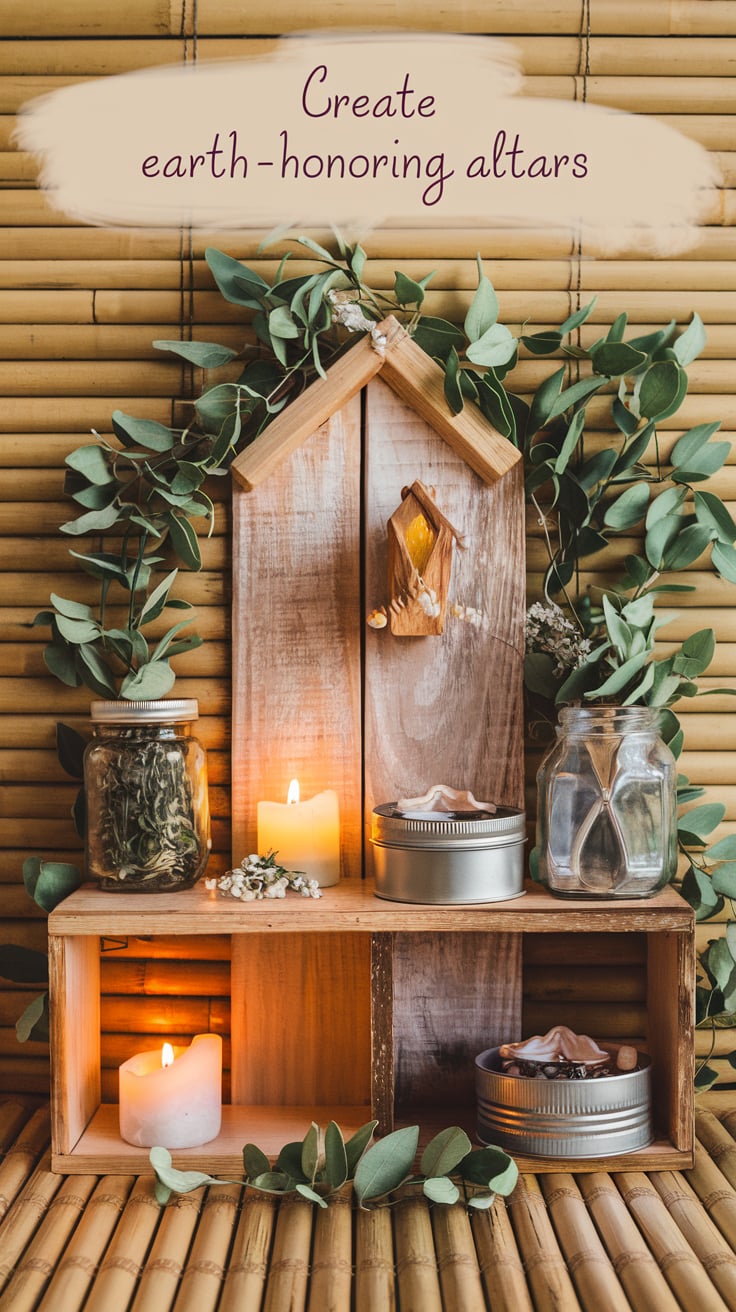
Recycled Wood: Rustic and Sustainable
Recycled wood brings a sense of history and character to your altar while reducing deforestation.
- Charm of Imperfection: The unique textures and grains of recycled wood add personality to your altar.
- Durability: Repurposed wood is often seasoned and more resistant to warping.
- Eco-Friendly: By reusing wood, you prevent it from ending up in landfills.
How to Source and Use Recycled Wood
- Look for reclaimed wood at salvage yards, thrift stores, or online marketplaces.
- Use recycled planks to build altar shelves or bases.
- Combine different types of wood for a patchwork-style altar.

Upcycled Materials: Creativity Meets Sustainability
Upcycling transforms old items into new treasures, making it a perfect approach for crafting altars.
- Cost-Effective: Upcycling often uses items you already own, saving money.
- Unique Designs: Each upcycled piece has a story and individuality.
- Environmental Impact: Reusing items reduces the need for new resources and minimizes waste.
Examples of Upcycled Altar Creations
- Turn an old wooden chest into a storage-friendly altar.
- Repurpose a broken mirror into an altar backdrop.
- Use glass jars, tins, or vintage boxes to hold incense, candles, or offerings.
Tips for Choosing Sustainable Materials
- Source Locally: Reduce the carbon footprint by sourcing materials from nearby locations.
- Check for Certifications: Look for FSC (Forest Stewardship Council) certified wood or bamboo.
- Avoid Toxic Finishes: Opt for non-toxic paints, stains, and sealants to maintain eco-friendliness.
Conclusion
Building an altar with sustainable materials is a meaningful way to honor both your spiritual practice and the environment. Whether you choose the sleek simplicity of bamboo, the rustic charm of recycled wood, or the creative flair of upcycled items, these options allow you to express your values while crafting a sacred space.
By prioritizing eco-friendly choices, your altar becomes more than a spiritual centerpiece—it becomes a symbol of harmony with the Earth.

Discover the power and wisdom of Artemis, the ancient Greek goddess of the hunt, the moon, and wilderness. Artemis Unveiled: The Huntress and Her Mysteries is your guide to connecting with this fierce and independent deity. For just $9.99, immerse yourself in rituals, spells, and a year-long devotional plan that will help you harness the energy of Artemis and bring her strength, protection, and wisdom into your daily life.
How to Bless White Candles for Yule Using Grocery Store Materials
White candles show up at grocery stores for a dollar. Unscented tapers, plain pillars, bags…
Traditional Yule Cookies with Cinnamon, Nutmeg, and Bay Leaf for Solstice Prosperity Magic
You’re standing in a warm kitchen making cookies while the world outside reaches its darkest…
Tips For Working With Lucifer During The Winter Solstice
Winter solstice timing makes sense for working with Lucifer when you look at what’s actually…
Stolas Altar Setup Guide: Study Desk for Goetic Teaching Work
Stolas teaches by training you to look harder. You’re studying moon phases for class and…
How to Build a Working Altar for Goetic King Bael
Bael appears in grimoires as the first king of the Goetia, ruling sixty-six legions. The…
How King Paimon Teaches Arts and Sciences Through Joy and Precision
The Ars Goetia describes the Ninth Spirit, King Paimon, arriving on a dromedary with a…

